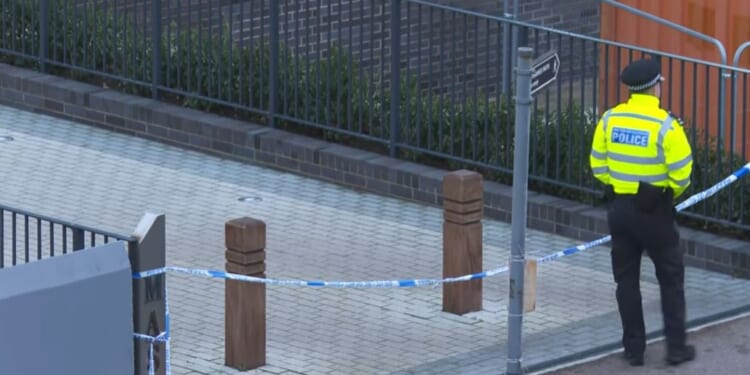Twenty years ago, Europe still felt whole. Streets were still. Nights were calm. Many slept without worry. You could wander Marseille’s streets without a thought or lose yourself in Venice’s narrow lanes without a trace of fear. Today, that sense of sanity feels like an artifact from an ancient time. The latest World Safety Index report confirms what most already sense. Europe is no longer secure. France and Italy — once the crown jewels of the continent — now rank below Rwanda and Bangladesh for public safety.
And yet, the political class keeps pretending all is well. They talk about green revolutions and digital rights while the public buys pepper spray.
Once vibrant districts now vibrate with dread. Riots erupt on cue; knife attacks barely draw a headline. The “City of Light” has dimmed to a nervous glow. And Italy, the land that once gave the world law and order, now seems to live without much of either. Tourists still pose by the ruins of the past, unaware that the present is crumbling. Only six in 10 Italians say they feel safe walking alone at night. The country that once ruled empires can no longer rule its own streets.
What unites both nations is more than geography — it’s a shared failure of courage. Paris and Rome, like London, Dublin, Brussels, and Stockholm, have absorbed massive waves of immigration from North Africa and the Middle East. Is it a coincidence that these once-respectable cities now rank among the most violent in Europe? That their streets, once defined by culture and civility, are now defined by rapes, stabbings, and gang wars?
Policymakers pretend culture plays no role, but objective reality tells a different story. In fact, many of Europe’s most dangerous cities today are the ones long celebrated as “cosmopolitan.” Once symbols of sophistication, the likes of Milan, Naples, and Marseille now rank alongside or below cities like Sarajevo and Odessa for violent crime. The same cities that once defined prosperity and progress now stand as textbook cases in chaos.
High unemployment rates in immigrant communities, combined with poor integration and alienation, have created a perfect storm. Many newcomers arrive from countries where violent crime is a fact of daily life. Where survival often depends on aggression, not restraint. When those habits are brought into societies built on order and trust, they don’t vanish at the border. They persist, mutate, and multiply. Add in lenient laws and a political class terrified of being called intolerant, and you have the modern European city: uneasy, divided, and increasingly unsafe. One needn’t be a scholar of sociology to draw the line. When cultural cohesion fades, crime follows. When shared values disappear, so does accountability.
However, amidst this continental collapse, one country stands apart. Denmark. While others drown in denial, it enforces its borders, protects its citizens, and insists on the kind of stability the rest of the continent now romanticizes. Where France burns and Italy buckles, Denmark thrives.
Nearly nine in 10 Danes feel secure walking home at night, an achievement that seems almost old-fashioned. Denmark achieved this through self-reliance and the strength to say no when Europe said yes In Denmark, borders matter. Laws are upheld. Tradition is practiced, protected, and passed on. Critics abroad call it cold. The Danes call it “Tuesday.”
But Denmark is the exception. Europe now mistakes decay for decency. Leaders chant of open borders and open hearts, as if goodwill could blunt a blade to the heart. They gather in conference halls while their people reinforce their homes. The continent that once raised cathedrals now fortifies its stations. The same cities that boast of compassion cower before consequence. Their words rise higher, while their streets run red below.
Daily life tells the story best. Shopkeepers pay small gangs to “mind” their businesses. Police drive through neighborhoods without stopping, like guests in their own homes. Europe — more specifically, Western Europe — resembles an insane asylum where doctors nod politely as patients rewrite the rules.
And yet, the political class keeps pretending all is well. They talk about green revolutions and digital rights while the public buys pepper spray and security cameras. They brand anyone who mentions crime as backward or hateful. The irony would be amusing if it weren’t so costly. It’s hard to save the planet when you can’t save your own streets. In Europe today, making it through the evening commute is no small feat; survival itself feels like triumph.
This isn’t nostalgia, but brutal arithmetic. A society that cannot protect its citizens cannot preserve itself. Europe has turned self-doubt into a political doctrine. The continent that once stood for discipline now bows to dysfunction. Security, once assumed, is now a luxury for the lucky. It’s governance by guilt and media-managed denial.
Denmark reminds us of what Europe once understood. Safety isn’t a privilege but the price of civilization. To many, the Danish approach looks radical. In truth, it’s simply responsible. It doesn’t assume that everyone who arrives shares the same values, or that every creed can coexist without conflict. It believes in fairness, not fantasy. Elsewhere, from Birmingham to Berlin, Madrid to Malmö, people have given up on safety — and on those who were meant to guarantee it.
READ MORE from John Mac Ghlionn:
The Donut Symbolizes American Exceptionalism
Is the Right Pining for Racial Purity?
The Myth of the Radical Young Right











![Florida Officer Shot Twice in the Face During Service Call; Suspect Killed [WATCH]](https://www.right2024.com/wp-content/uploads/2025/12/Inmate-Escapes-Atlanta-Hospital-After-Suicide-Attempt-Steals-SUV-Handgun-350x250.jpg)





